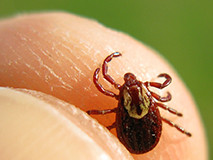
Daily cup of coffee may prevent afib recurrence

Gene-editing therapy lowers harmful blood fats in early study

What is EMDR therapy, and who can it help?

GLP-1 drugs versus bariatric surgery for treating obesity

Trying to lose weight? Be careful not to lose muscle

Two dumbbells, three exercises, and 10 minutes

Easing the emotional burden of IBS

Modify your push-ups to meet your fitness level

What is long QT syndrome?

Stroke survivors may benefit from very low LDL levels
Harvard Health Blog
Read posts from experts at Harvard Health Publishing covering a variety of health topics and perspectives on medical news.
Articles
Radiation for breast cancer can increase heart risks
Radiation, on its own or coupled with other treatments, has helped many women survive breast cancer. Yet radiation therapy can cause the appearance of heart disease years later. New research published in JAMA Internal Medicine estimates that the increased lifetime risk for a heart attack or other major heart event in women who’ve had breast cancer radiation is between 0.5% and 3.5%. The risk is highest among women who get radiation to the left breast—understandable, since that’s where the heart is located. The heart effects of radiation begin emerging as soon as five years after treatment. However, future heart risk should not be the reason to abandon this important component of treatment. Cancer experts are doing more and more to minimize the amount of radiation the heart receives.
World Stroke Day: stroke is common, disabling, and often preventable
Today is World Stroke Day. It offers a good reminder of the profound impact that stroke has on individuals and communities. Nearly 800,000 Americans have strokes each year. Worldwide, one in six adults will have a stroke during their lifetime. Although most survive, stroke is a leading cause of disability in the United States and many other countries. A report published last week in The Lancet documents a troubling trend: more and more young people are experiencing strokes. Between 1990 and 2010, the number of strokes among people aged 20 to 64 years increased 25%. This age group now accounts for one-third of strokes worldwide. Some stroke survivors recover fully and regain their previous levels of function. Others don’t. Keys to full recovery include rapid identification of stroke symptoms, immediate evaluation and treatment, early rehabilitation, and support
Prostatitis: inflamed prostate can be a vexing health problem
Prostatitis (infection or inflammation of the prostate gland) flies under the radar even though it affects up to one in six men at some point in their lifetimes. It triggers more than two million visits to doctors and untold agony each year.
Flu shot linked to lower heart attack, stroke risk
Getting the flu shot may do more than protect against the flu and its lingering aftermath. It also lowers a person’s odds of a having heart attack, stroke, heart failure, or other major cardiac event—including death—by about a third over the following year. What’s the connection between flu and cardiovascular problems? The body mounts an impressive immune response against the flu. That causes a lot of inflammation, which destabilizes cholesterol-filled plaque inside blood vessels. Plaque rupture can cause a heart attack or stroke. Experts recommend a flu shot for everyone six months of age and older. It is especially important for those who face the highest risk of complications: young children; adults over age 50; those of all ages with serious health conditions such as cardiovascular disease, asthma or other lung disease, liver or kidney disease, or diabetes; and those who care for young children or other individuals at high risk of flu complications.
Doctors often don’t reveal cancer test overtreatment and harms
There’s no question that tests to detect cancer before it causes any problems can save lives. But such tests can also cause harm through overdiagnosis and overtreatment. A study published yesterday in JAMA Internal Medicine indicates that the majority of people aren’t informed by their doctors that early warning cancer tests may detect slow-growing, or no-growing, cancers that will never cause symptoms or affect health. Undergoing surgery, chemotherapy, or radiation for such cancers provides no benefits and definite harms. The researchers found that only 9.5% of people were informed by their doctors of the risk of overdiagnosis and possible overtreatment. Compare that to 80% who said they wanted to be informed of the possible harms of screening before having a screening test. Informing patients about the risks of screening isn’t easy to do in a brief office visit. It’s complicated information. And the researchers suggest that many doctors don’t have a good grip on relative benefits and harms of screening.
Stopping nosebleeds: a pinch will usually do the trick
Most nosebleeds (the medical term is epistaxis) stop quickly. Some, though, need medical attention. An article posted online yesterday in JAMA Otolaryngology-Head & Neck Surgery looks at treatment options for serious nosebleeds. The bottom line: Conservative options, like packing the nose with gauze, work just as well as more invasive efforts, have negative fewer side effects, and cost less. It makes sense to treat every nosebleed as if it is one that can be fixed at home. A good, strong pinch in the right place will often do the trick.
PET scans peer into the heart of dementia
What’s bad for the heart is often bad for the brain. High cholesterol, high blood pressure, diabetes, and unhealthy “hardening” of the arteries increase the risk of mental decline or dementia later in life. A study published online today in Neurology shows that older people with the stiffest arteries are more likely to show the kinds of damage to brain tissue often seen in people with dementia. The study adds support to the “two hit” theory of dementia. It suggests that the accumulation of Alzheimer’s-linked amyloid protein in the brain may not pose problems until damage to small blood vessels that nourish the brain nudges them over into dementia. There may be a silver lining to this line of research: Efforts to improve cardiovascular health can also protect the brain.
Letters from an obese president tell a familiar story of struggling with weight
William Howard Taft was America’s heaviest president. He would have preferred being seen and remembered for something else, and took steps to lose weight. Taft’s story of weight loss and regain, described in today’s Annals of Internal Medicine, sounds completely familiar today, more than 100 years later. Using correspondence and archival sources, Deborah Levine, an assistant professor at Providence College in Rhode Island, tells the story of Taft’s struggles with his weight. In 1905, with the help of a British physician, Taft went from 314 pounds to 255. He was pleased with his accomplishment. But three years later, when Taft was inaugurated as the nation’s 27th President, he tipped the scales at 354 pounds. His story and struggle with weight are no different than what many people experience today.
Achieving orgasm after radical prostatectomy
Radical prostatectomy changes the experience of orgasm. But it doesn’t need to be any less pleasurable or satisfying, says Dr. Ravi Kacker, a urologist and fellow in male sexual medicine at Harvard-affiliated Beth Israel Deaconess Medical Center.
How to prevent kidney stones
Drinking water and changing your diet are just some ways to avoid kidney stones. See the full list here.
Weight loss, breathing devices still best for treating obstructive sleep apnea
Having obstructive sleep apnea puts you at risk for a number of conditions, including high blood pressure and stroke. New guidelines from the American College of Physicians (ACP) emphasize lifestyle modifications for treating obstructive sleep apnea to prevent those conditions. The guidelines don’t offer any radical treatment updates, but they do reinforce the effectiveness of tried and true therapies. The first recommendation is weight loss for people who are overweight and obese. The link between excess weight and sleep apnea is well established. The second recommendation is using continuous positive airway pressure, or CPAP. This is typically the first-line treatment because weight loss can be so hard to achieve.
Study suggests testing bone health in older people less often may be safe
One key instruction in the operating manual for healthy aging is remaining ever vigilant about osteoporosis. The quest to identify osteoporosis early has led to widespread testing of bone mineral density (BMD), the key measure of bone strength. Medicare pays for the gold-standard test, dual-energy X-ray absorptiometry (DEXA), every two years, regardless of whether their previous scan was normal or not. A study published today found that repeat bone-density testing after four years improved the ability to identify those at higher risk by only 4%. This study raises the fundamental question: Is repeating testing of older people with normal bone strength every two years too much?
Overweight and healthy: the concept of metabolically healthy obesity
Carrying too many pounds is a solid signal of current or future health problems. But not for everyone. Some people who are overweight or obese mange to escape the usual hazards, at least temporarily. This weight subgroup has even earned its own moniker—metabolically healthy obesity. Most people who are overweight or obese show potentially unhealthy changes in metabolism, like high blood pressure, high cholesterol, and insulin resistance. But some people who are overweight or obese manage to avoid these changes and, at least metabolically, look like individuals with healthy weights. Such individuals have near-normal waist sizes, blood pressure, cholesterol, and blood sugar, as well as good physical fitness. Metabolically healthy obesity isn’t common. And it may not be permanent.
Combine brief bouts of moderate exercise for health
No time in your busy schedule for a long workout? No problem. Combining brief bouts (less than 10 minutes long) of moderate to vigorous exercise over the course of the day also add up to good health, an interesting new study suggests. The findings reinforce suggestions that people should look for simple ways to get short bouts of moderate to vigorous exercise: for example, by parking at the far end of the lot and walking briskly to the entrance, by taking the stairs quickly instead of riding the elevator, or by plugging in your earbuds and dancing energetically to a favorite song. If you are a professional working a desk job at a computer, set a timer and every half hour get up and do a minute or two of something energetic.
Insoles no help for knee osteoarthritis
Nearly a third of Americans will develop osteoarthritis of the knee before age 70. With no “cure” beside knee replacement on the horizon for this painful joint condition, relief often has to come from pain pills. Assistive devices such as wedge insoles are often prescribed as a less drastic, side effect-free treatment option. But do they really work? A review of research published today in JAMA indicates that these shoe inserts do little—if anything—to relieve arthritis pain. The findings echo new osteoarthritis treatment guidelines released by the American Academy of Orthopaedic Surgeons (AAOS) in May. Based on current research, the AAOS said it couldn’t recommend lateral wedge insoles for people with medial knee osteoarthritis.
Lyme disease 10 times more common than thought
The 30,000 cases of Lyme disease reported to the Centers for Disease Control and Prevention (CDC) each year are just the tip of the iceberg. According to a new CDC estimate, more than 300,000 Americans are diagnosed with the tick-borne disease each year. The new number was presented at the 2013 International Conference on Lyme Borreliosis and Other Tick-Borne Diseases, being held in Boston. Although the disease has been diagnosed in almost every state, most cases reported to the CDC are in the Northeast and upper Midwest—96% of cases come from 13 states. The new estimate comes from a multi-pronged approach: gathering case reports from doctors, sifting through health insurance claims, analyzing data from clinical laboratories (which do the tests necessary to diagnose Lyme disease), and surveying the public for self-reported Lyme disease.
Diabetes drug showing promise for prostate cancer treatment
Metformin—the drug that millions of people with diabetes take to control their blood sugar—may be on the brink of a second career. Evidence from a variety of studies suggests that metformin may delay or slow the progression of prostate cancer. Metformin does not, however, appear to prevent the development of prostate cancer in the first place.
12 ways to help a child make the transition to kindergarten
For some children, beginning kindergarten represents a scary transition. They wonder about making new friends and getting used to a new teacher—will they be able to find the bathroom, where will they eat snack, how will they fit in? There are several ways to help make the transition a smooth one. These include acknowledging the child’s fear as real and appropriate while offering reassurance, talking about the transition in a positive way, doing play therapy at home, visiting the school beforehand if possible, and reading to the child about starting kindergarten.
Prostate cancer lives as it is born: slow-growing and benign or fast-growing and dangerous
In many men diagnosed with prostate cancer, the cancer cells grow so slowly that they never break free of the gland, spread to distant sites, and pose a serious risk to health and longevity. Instead of embarking on immediate treatment, a growing number of men choose active surveillance, in which doctors monitor low-risk cancers closely and consider treatment only when the disease appears to make threatening moves toward growing and spreading. A new Harvard study shows that the aggressiveness of prostate cancer at diagnosis remains stable over time for most men. If confirmed, then prompt treatment can be reserved for the cancers most likely to pose a threat, while men with slow-growing, benign prostate cancer—which is unlikely to cause problems in a man’s lifetime—can reasonably choose active surveillance.
Above-normal blood sugar linked to dementia
There are many reasons to keep your blood sugar under control: protecting your arteries and nerves are two of them. Here’s another biggie: preventing dementia, the loss of memory and thinking skills that afflicts millions of older Americans. A study published today in the New England Journal of Medicine shows that even in people without diabetes, above normal blood sugar is associated with an increased risk of developing dementia. The study does not prove that high blood sugar causes dementia, only that there is an association between the two. For that reason, don’t start trying to lower your blood sugar simply to preserve your thinking skills, cautions Dr. Nathan. There’s no evidence that strategy will work, although he says it should be studied. But it is still worth keeping an eye on your blood sugar. Excess blood sugar can lead to diabetes and a variety of other health problems, including heart, eye, kidney, and nerve disease.

Daily cup of coffee may prevent afib recurrence

Gene-editing therapy lowers harmful blood fats in early study

What is EMDR therapy, and who can it help?

GLP-1 drugs versus bariatric surgery for treating obesity

Trying to lose weight? Be careful not to lose muscle

Two dumbbells, three exercises, and 10 minutes

Easing the emotional burden of IBS

Modify your push-ups to meet your fitness level

What is long QT syndrome?

Stroke survivors may benefit from very low LDL levels
Free Healthbeat Signup
Get the latest in health news delivered to your inbox!
Sign Up























